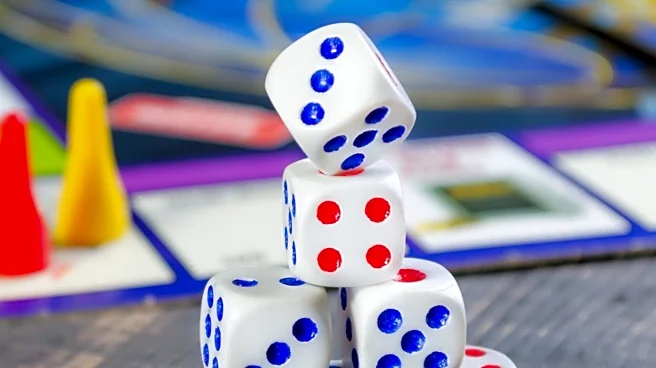What's Happening?
Recent studies suggest that playing board games can help reduce the risk of cognitive decline in older adults. Games like Monopoly, Scrabble, and newer titles such as Ticket to Ride and Pandemic are associated with higher cognition and improved quality of life. The social and mental engagement provided by these games is believed to enhance cognitive reserve, allowing the brain to function effectively despite aging or disease. Additionally, the article highlights the story of 92-year-old sprinter Emma Maria Mazzenga, whose physical fitness is being studied for insights into healthy aging.
Why It's Important?
The findings underscore the potential of leisure activities like board games to contribute to mental health and cognitive longevity. As the population ages, such non-pharmaceutical interventions could play a crucial role in public health strategies aimed at preventing dementia and other cognitive disorders. The research also emphasizes the importance of social interaction and mental stimulation in maintaining brain health, which could influence future recommendations for aging populations.
Beyond the Headlines
The cultural resurgence of board games reflects a broader societal shift towards activities that promote mental well-being and social connection. This trend may lead to increased interest in community spaces like board game cafes, fostering social interaction across different age groups. The study of individuals like Mazzenga could also inspire further research into the biological factors that contribute to healthy aging, potentially influencing fitness and wellness programs.









